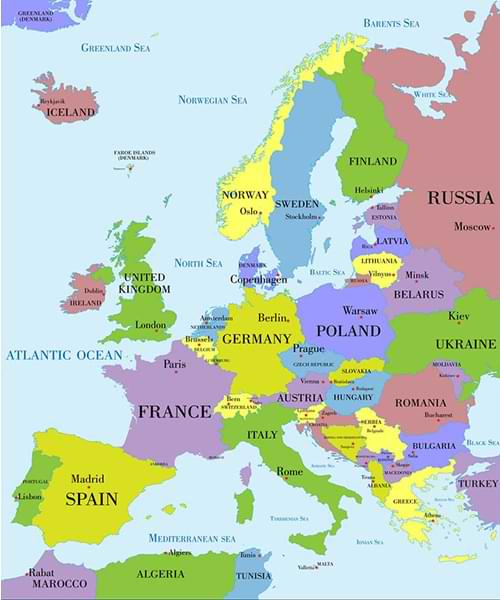Why Study in the Europe?
World-class cities for students
Top-ranked universities
Employment opportunities
Quality of life
International student support
Europe Funny FACTS
The Notre Dame is the most visited attraction in Europe
Iceland doesn’t have mosquitos
More chocolate is bought at Brussels Airport than anywhere else in the world
St. Peter’s Basilica is the largest church in Europe
The Kingdom of Denmark is the oldest monarchy in Europe
Never clink your glasses in Hungary
There are more than 200 languages spoken in Europe
It’s illegal in Switzerland to mow your lawn on Sundays
The smallest town in Europe is in Croatia
Three Quarters of world’s potatoes comes from Europe.
Intakes
The European Universities allow three intakes per year:
Spring - August to December
Fall - December to January
Summer - May to August
Student Visas
For students intending to study in Europe, there are a variety of visa possibilities. The following are the most important:
-
01
Europe Schengen Visa:
This is a three-month temporary student visa for international students who intend to study in a Schengen country. Once it expires, this visa can be extended, and if a student is accepted into his or her visa program, he or she can apply for a residency permit. A Schengen study visa may be granted without an IELTS or other language exam if the organization does not need it.
-
02
Long-Stay Visa:
This visa is usually awarded to international students who enroll in courses or programs that require a stay of more than six months. A residency permit is also included with this visa.
-
03
Student Visa in Europe:
This is the most common visa for international students. Once a student has received an offer of admission or an admission letter, they can apply for this visa. Students are typically permitted to enter the country to pursue a particular course or program at that University.
Working while you study in Ireland
Certain European countries allow students to work a stipulated number of hours yearly. However, this can only be part-time work and not full-time.
Working in Europe after graduation
European countries offer various employment opportunities for graduates. To stay in the country, graduates must apply for temporary residence or a work permit soon after graduating. Your One Stop Global Consultants consultant can guide you through this process so you can better plan your educational and professional journey in Europe.
FAQ's
Applying for European universities involves the following steps:
Choose the course you are willing to study
Research about the universities offering the course
Go through the course program offered by the University
Consider the tuition fee and other costs
Look for visa options and approval rates
Apply for the visa and migrate to the country
Some of the best scholarships for Indian students willing to study in Europe are:
DAAD Scholarship Programs
EMS Undergraduate Scholarship
EMS Scholarship for Master’s and doctoral courses
Swedish Institute Scholarships
Chevening Scholarship
Deutschland Stipendium National Scholarship Programme
GATES Cambridge Scholarship
Yes, there are more than 30,000 English-taught programs for both Bachelor's and Master's Degrees.
The top 10 affordable universities in Europe include the University of Vienna (Austria), Free University of Berlin (Germany), University of Gottingen (Germany), RWTH Aachen University (Germany), Scuola Normale Superiore di Pisa (Italy), Scoular Superiore Sant'Anna (Italy), TU Dresden (Germany), Heidelberg University (Germany), University of Pisa (Italy), and Léonard de Vinci University College (Belgium).

